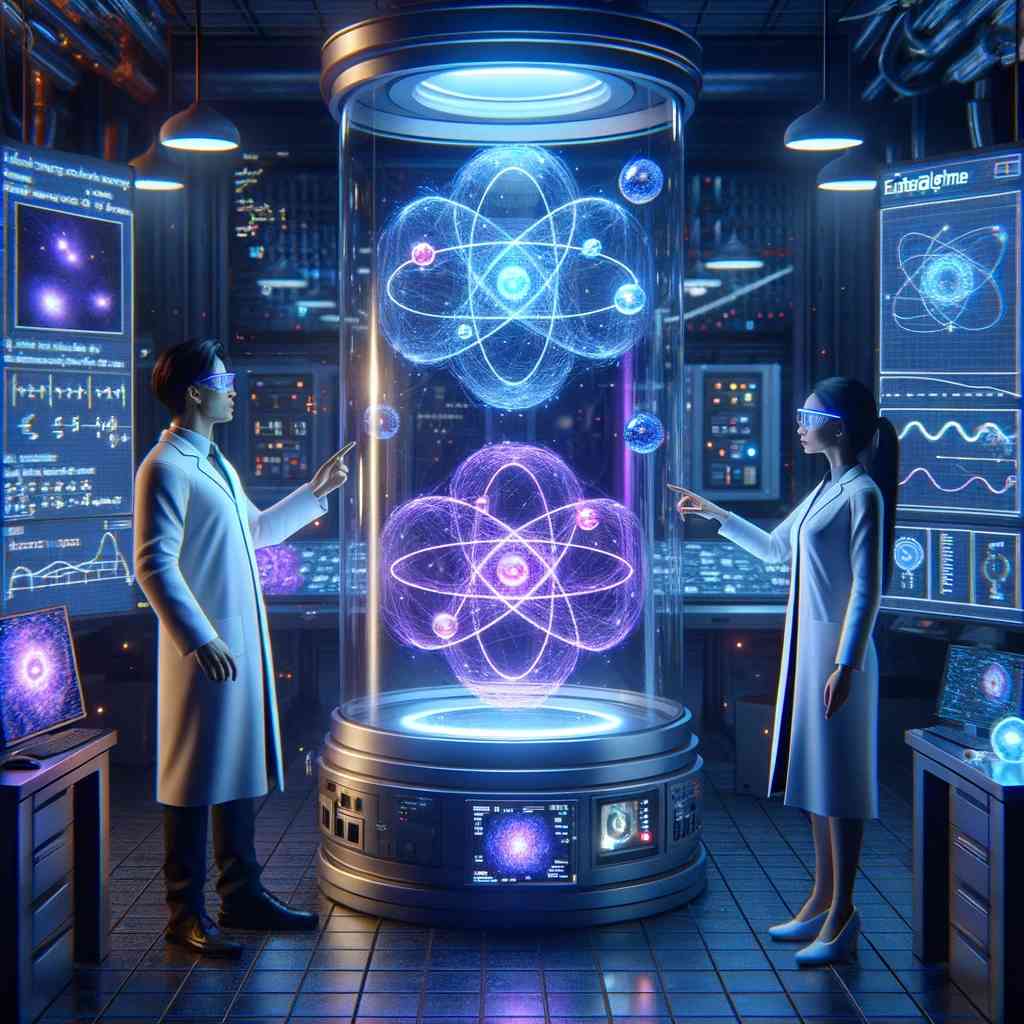Quantum Entanglement and the Future of Artificial Intelligence
 The realm of quantum physics, which defies our classical understanding of the world, introduces phenomena that seem almost magical. One such phenomenon is quantum entanglement, a property that allows particles to instantaneously affect each other, irrespective of the distance separating them. While entanglement has mystified scientists for decades, it is increasingly viewed as a cornerstone for advancing artificial intelligence (AI). This article explores the intricate concept of quantum entanglement and its potential applications in AI.
The realm of quantum physics, which defies our classical understanding of the world, introduces phenomena that seem almost magical. One such phenomenon is quantum entanglement, a property that allows particles to instantaneously affect each other, irrespective of the distance separating them. While entanglement has mystified scientists for decades, it is increasingly viewed as a cornerstone for advancing artificial intelligence (AI). This article explores the intricate concept of quantum entanglement and its potential applications in AI.
What is Quantum Entanglement?
To understand quantum entanglement, we first need to dip our toes into quantum mechanics, the branch of physics that studies the smallest particles in the universe—particles so tiny that the rules of classical physics no longer apply. Quantum entanglement occurs when two or more particles become intrinsically connected, such that the state of one particle is dependent on the state of another, regardless of the distance between them. Imagine two entangled electrons: if you measure the spin of one and find it to be "up," the spin of the other will instantaneously become "down," even if they are light-years apart.
Why Does This Matter for AI?
Classical computing systems, which underpin current AI technologies, are based on bits that can either be a 0 or a 1. In quantum computing, the fundamental unit of information is the quantum bit or qubit, which can exist in a superposition of states—being both 0 and 1 simultaneously, until measured. Quantum entanglement can be utilized to link qubits in a way that enhances computational power and efficiency. For example, quantum algorithms like Shor's algorithm for factoring large numbers or Grover's algorithm for searching unsorted databases could perform exponentially faster than their classical counterparts.
Futuristic Applications in AI
The role of quantum entanglement in future AI applications is twofold: increasing computational power and enabling secure communication.
Computational Power: Entangled qubits can perform complex calculations more efficiently, paving the way for AI algorithms that can solve problems currently considered intractable.
Secure Communication: Entangled particles are incredibly sensitive to any form of tampering. This property can be used to create ultra-secure communication channels, essential for secure data exchange in AI systems.
Challenges and Considerations
It's essential to note that we are still in the infancy of understanding how to best harness quantum entanglement for practical applications. The development of stable, scalable quantum computers remains a significant challenge. Moreover, integrating quantum computing with existing AI algorithms requires overcoming numerous technical and theoretical hurdles.
Quantum entanglement is more than a quirky, mysterious phenomenon; it holds the potential to revolutionize the field of AI. As we advance in our understanding and technology, the fusion of quantum mechanics and AI may well usher in a new era of computing, marked by unprecedented computational power and security.
The implications of quantum entanglement for AI are profound and extend beyond mere speed or efficiency gains. By diving deep into the quantum world, we are setting the stage for AI capabilities that we can barely imagine today.